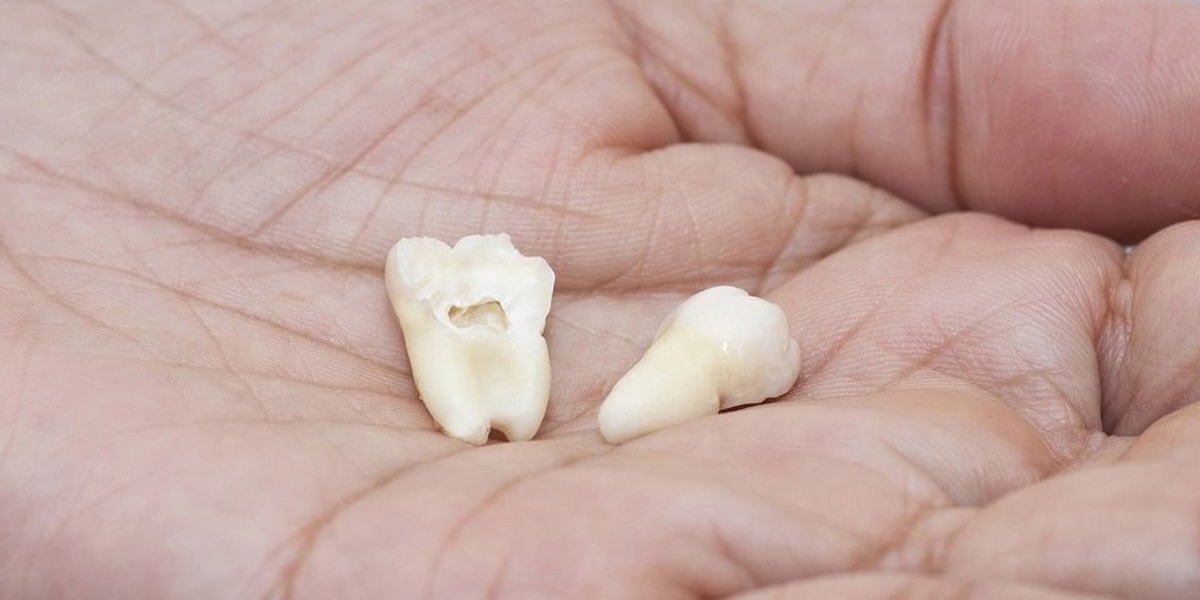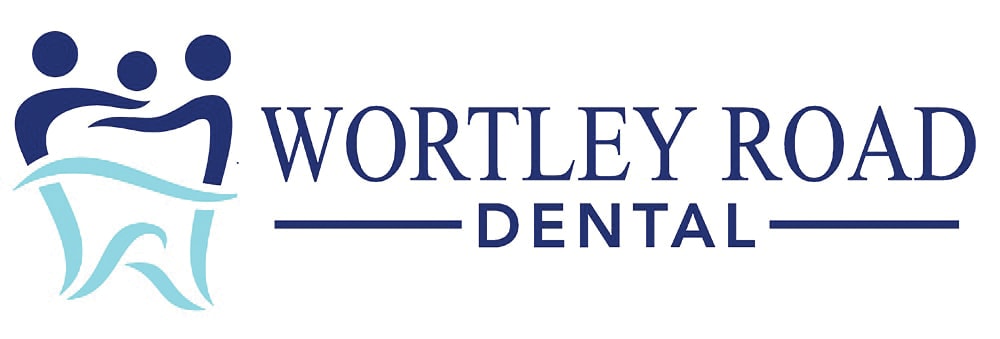General Dental Services
Wisdom Tooth Removal in London, ON
Our Dentist, Dr. Jordan Wall, provides removal of impacted and non-impacted wisdom teeth here in London. There are many reasons for the removal of wisdom teeth and we want our valued patients to understand when and why it makes sense to have their wisdom teeth removed.
Below, you’ll find some of the most complete information on wisdom tooth removal out there including the most commonly asked patient questions in the FAQ section of this article.
First, let’s talk about what wisdom teeth are, why we have them, and why they don’t seem to fit in the mouths of most people.
Wisdom Teeth: An Overview
An in-depth analysis of wisdom teeth
What are wisdom teeth and when do they grow in?
“Wisdom Teeth” is an everyday term for 3rd molars. For most of us, these teeth start to erupt into the mouth at 14-18 years of age. For this reason, our patients in the 14-18 year age range tend to notify us of pressure and pain related to their 3rd molars coming into the mouth.
You can typically expect the pain or pressure behind your 2nd molars which is where the 3rd molars or Wisdom Teeth tend to erupt.
People often wonder why we develop wisdom teeth if they cause problems at a pretty high rate.
That is, why do we have wisdom teeth at all?
Well, wisdom teeth provide us with additional teeth and functional surface area for chewing food. So, that can’t be a bad thing, right?
The answer to that question is, it depends.
Some people have enough lower jaw length to accommodate the eruption of their wisdom teeth but most people don’t.
There is evidence that the human lower jaw or mandible has been getting smaller over the last 1,000 or so years. There is comparative evidence showing that the current human mandible is, on average, smaller compared to mandibles in pre-industrial humans.
So, effectively, we have less room for wisdom teeth now than we did even 150 years ago!
This means that, in many of us, the advantage of having a 3rd set of molars has become a potential burden.
What can happen if we don’t have enough space and run into trouble with our wisdom teeth?
The answers are in our next section…
Why should we remove our wisdom teeth?
Patients will often ask, “is wisdom tooth removal really necessary?”.
First of all, we don’t believe in removing all wisdom teeth. If somebody has enough space to allow for proper eruption of wisdom teeth, then we suggest keeping them. The key is that the 3rd molars have to be in a good position so that they can be cleaned and maintained.
We want wisdom teeth that won’t interfere with the health of other teeth or your gums.
But, in many cases, when there isn’t enough space for wisdom teeth, they become blocked or “impacted”. In an impacted position, they are not cleanable, can become infected and can even lead to cavities on the teeth in front of them.
Impacted wisdom teeth can even lead to the formation of jaw cysts and tumours.
So, as a summary, impacted wisdom teeth can lead to:
1. Cavities
2. Soft tissue or Gum infections
3. Cysts and tumours of the jaw
Of all 3 outcomes listed above, gum infection around a wisdom tooth is by far the most common. What does a wisdom tooth infection feel like?
Wisdom Tooth Infection Symptoms
1. Pressure or pain in the jaw around/near an impacted wisdom tooth
2. Burning or stinging gums around a wisdom tooth
3. Pus draining from the gums around an impacted wisdom tooth
4. Fever
5. Jaw pain
6. Jaw stiffness and difficulty opening
7. A foul odour or taste originating from around one or more of your wisdom teeth
How do you relieve wisdom tooth infection pain in the short term?
Here are some helpful solutions…
The top priority is to call your Dentist so that you can arrange an exam or consult. They need to assess your wisdom teeth to be able to tell you if removal is a sound option. Your London Family Dentist will have a good idea as to whether the pain and infection are likely to return or not based on a number of factors.
From there, you can help to minimize the dental plaque and bacteria that settle under the gums around an impacted or partially erupted wisdom tooth. The best tool you can use is an “elbow syringe” or “Monoject”. These can be purchased at your local pharmacy. You can load this curved-tip plastic syringe with salt water and place the nozzle or spout gently under the gums around your wisdom tooth to gain access for rinsing. If you push a little harder on the syringe plunger you’ll generate some high-pressure water flow that can get under your gums to rinse out dental plaque and food particles.
If there is pus under your gums, this irrigation technique will help to eliminate that too.
Just remember, stagnant dental plaque provides food for the bacteria causing your wisdom tooth infection. If you don’t have plaque collecting under your gums for long periods, you’ll be far less likely to develop a true wisdom tooth infection. Your goal is basically to starve the bacteria around your impacted wisdom tooth.
If you can safely take anti-inflammatory pain medications like Ibuprofen, you’ll get pain relief that’s superior to what Tylenol can provide. Using Ibuprofen products like Advil, Motrin, Alleve will not diminish or eliminate your infection it will help to eliminate pain only.
So, we’ve learned that you can experience some pretty uncomfortable symptoms if you develop a wisdom tooth infection. However, there are cases where a patient’s wisdom teeth never cause a single problem.
So, if wisdom teeth can erupt in a healthy way, we leave them alone to do so. However, in the vast majority of cases, these teeth are short on available space or erupt in a tipped fashion and we recommend removal at a time that is simplest and safest.
When should wisdom teeth be removed?
Most parents want to know what the best age for wisdom tooth removal is. Well, it’s a complex question and it depends on the stage of development for the wisdom teeth (it’s not always based on age). So, for one patient 14 years of age makes good sense to minimize risks and maximize benefit but for another patient, 17 years of age might be the right time.
It’s a balance between taking enough time to track tooth development (and the likelihood that the tooth comes in properly) and intervening soon enough (with tooth removal) when development isn’t progressing well.
Generally, we like to take a special Panoramic or “full-jaw” x-ray to assess wisdom tooth development between 10-14 years of age. From there, we can discuss the need for potential treatment versus observation (or a “wait and see” approach).
Who takes out Wisdom Teeth in London, Ontario?
Your friendly London Family Dentist may provide this service but, in some cases, they will refer you to an Oral Surgeon for treatment. If you’re looking for someone to provide wisdom tooth removal, call their office to find out if they deal with impacted wisdom teeth.
Our London Dentist, Dr. Jordan Wall, provides removal of both erupted and impacted wisdom teeth and we also offer dental sedation to keep you comfortable during your appointment.
How are wisdom teeth removed?
This is a great question and it depends on whether your wisdom teeth are erupted (or “in the mouth”) or impacted (or submerged under gums and jaw bone).
Erupted wisdom teeth can oftentimes be removed non-surgically. Impacted wisdom teeth may require adjustments to the surrounding gums and bone to enable removal.
It’s typically most convenient to remove all wisdom teeth in one appointment to eliminate multiple healing periods over time. People typically experience some level of anxiety about having their wisdom teeth removed and so they tend to appreciate the “1 and done”, single appointment approach, to wisdom tooth removal.
How many wisdom teeth do we have and how many need to be removed?
Most patients have 4 wisdom teeth or 1 in each corner of their mouth. It is, however, not uncommon to see a patient with only 2 or 3.
Missing 1 or more wisdom teeth is not a major concern.
Occasionally, patients will have additional wisdom teeth. Where this occurs, the extra teeth are typically very small and simple to remove if that is required.
When your London Family Dentist assesses your wisdom teeth, they’ll let you know how many you have developed and make recommendations regarding removal vs. observation.
Do you need sedation for wisdom tooth removal?
You do not need sedation for wisdom tooth removal but it can certainly help patients to relax during treatment. It’s important to know that there are many sedation options and sedation doesn’t always mean being “put out” or “put to sleep”.
At Wortley Road Dental, Dr. Wall provides many sedation options so be sure to ask us about how we can make you more comfortable for your wisdom tooth extraction procedure.
Is wisdom tooth extraction painful?
No dental treatment should be painful. At Wortley Road Dental, we strive to make sure our patients can receive the best care comfortably. When Dr. Wall removes wisdom teeth, he uses a surgical-grade local anesthetic to make sure you’re numb during the treatment.
Patients can feel light pressure during treatment even with sufficient dental freezing in place and this is normal.
Any discomfort associated with wisdom tooth extraction typically occurs during the post-operative healing period. For this reason, you’ll be sent home with a prescription for pain medication so that you’re comfortable while you heal.

After Wisdom Tooth Removal: Symptoms and What to Expect
After you have your wisdom teeth removed in London, ON, you’ll likely take a few days to heal from the procedure. What does this mean for you and how can you prepare for the healing period?
Well, patients generally book their extractions so that they have at least a couple of days to rest and recover before returning to school or work. This is generally the case with the removal of impacted wisdom teeth. Ask your Dentist as, in some instances, it may be possible to return to school or work the day after non-surgical removal of erupted (non-impacted) wisdom teeth.
After surgical extraction of impacted wisdom teeth, you may be sore or swollen for a few days up to 1 week. During this time, you may need to take pain control medication prescribed by your Dentist.
Here are some other tips you can use to optimize comfort and healing:
1. No Straws, No Smoking. Drinking through a straw or smoking can create negative pressure in the mouth and this can cause loosening of the blood clot that’s sealing your extraction socket. Smoking is also generally working against proper tissue healing for a number of other reasons.
2. Rinse Lightly. Saltwater rinses will help to keep things clean and fend off infection. Rinse with salt water for the first week after wisdom tooth removal. You don’t have to be precise but the best recipe is 1tbsp (15mL) of salt in a regular-sized glass of water. The key is to gently rinse and try to avoid vigorous swishing.
3. Avoid vigorous activity. If you’ve had impacted wisdom teeth removed surgically, you probably don’t want to be in the gym the next day. Plan for at least a few days away from strenuous exercise including weight training, cardio and competitive sports. These activities can increase blood pressure and bleeding. They can also cause you to increase tension in the mouth and cheeks if you’re straining through activity and that can disturb sutures.
4. Eat what you can tolerate. Nutrition is super-important for healing so make sure to get the fuel you need after tooth removal. However, you may find that for the first few days after treatment you’ll want to avoid foods that are hot, sharp and/or chewy. Any of these can lead to tissue trauma, increased bleeding and further soreness to a stiff jaw. Generally, soft foods, soups, yogurt and meal replacement beverages are easy to tolerate during the first few days after wisdom tooth extraction. Smoothies, pudding, mashed potatoes and apple sauce are all fairly safe, nutritious foods as well!
5. Get elevated! You want to keep your head elevated during healing. When we go to sleep, our heads are typically level with, or just slightly above our hearts. So, for the first 2-3 days after treatment, try to keep at least 2 pillows under your head during sleeping. Doing this will limit swelling and pressure buildup at the healing sites. Lower pressure and less swelling mean better healing and less pain.
6. Use your gauze. It’s not uncommon to have some light bleeding from healing extraction sockets. Your London Dentist will supply you with plenty of gauze pads “just in case”…so feel free to use them. Roll up 1-2 squares of gauze into a dense pillow, place that pillow over the healing sites and then bite down for 15 minutes. Good, sustained pressure on gauze will stop any light to moderate bleeding you’re experiencing. If bleeding doesn’t stop after a few cycles of gauze, call your Dentist to let them know.
7. Keep things cool! Using cold compresses (think cold packs, frozen peas/corn bags, etc.,) against any tender areas around your jaws will help to soothe things and prevent further swelling. Doing this will be most important in the first 2-3 days following wisdom tooth removal.
8. Stick to the Script. Your London Dentist will likely arrange for you to have some medications as you heal. The first will be some form of pain control medicine while the second will be a safe antibiotic to help prevent infection as your gums heal up and seal up! Try to stick to taking those medications as prescribed. Also, don’t forget to take any medications on a full stomach to minimize the risk of upset stomach, nausea and diarrhea. You may be at an increased risk of nausea if you’ve had your wisdom teeth extracted under sedation.
How much does wisdom tooth removal cost?
The cost of wisdom tooth removal depends on the ease/difficulty of the procedure. We’ve distinguished above between removal of erupted teeth versus impacted teeth. Beyond that, we can group impactions into different categories depending on whether they’re partially through the gums, completely under the gums, or completely under the jaw bone.
We find that a range of costs is helpful. This range is based on fees outlined in the Ontario Dental Association Fee Guide.
When you discuss wisdom tooth removal costs with your London Dentist, you’ll probably hear a per tooth amount between $250 – $600. Again, that amount is per tooth. The total cost of treatment will also depend on whether you have treatment completed with sedation or not as sedation brings with it additional costs.
As a best practice, ask for a cost estimate or pre-determination for costs so that you have an idea about what treatment will cost.
Will my dental insurance cover wisdom tooth extraction?
Tooth extraction is deemed by most insurance providers to be a routine or “basic” dental expense. It’s in the same category as dental fillings, root canal treatments and checkups. If your insurance does indeed cover wisdom tooth removal in London, ON, you’ll want to know how much they cover.
Some plans cover 60% of eligible expenses, others cover 80%. This is why it’s best to have your Dental Office submit a pre-determination for costs to your insurance provider.
Our Clinic
Wortley Road Dental
250 Wortley Road, London, Ontario, Canada
Follow Us!
Keep in Touch
Contact Us
Any Questions?

